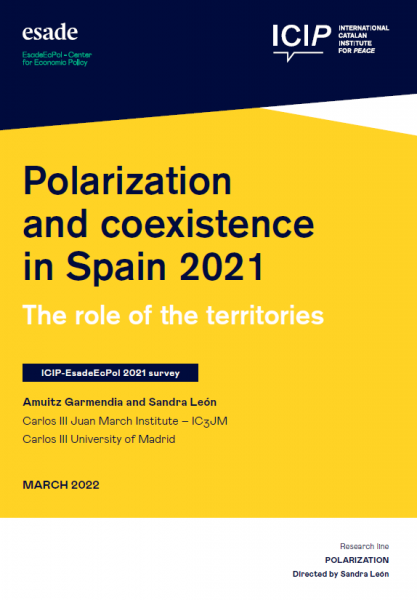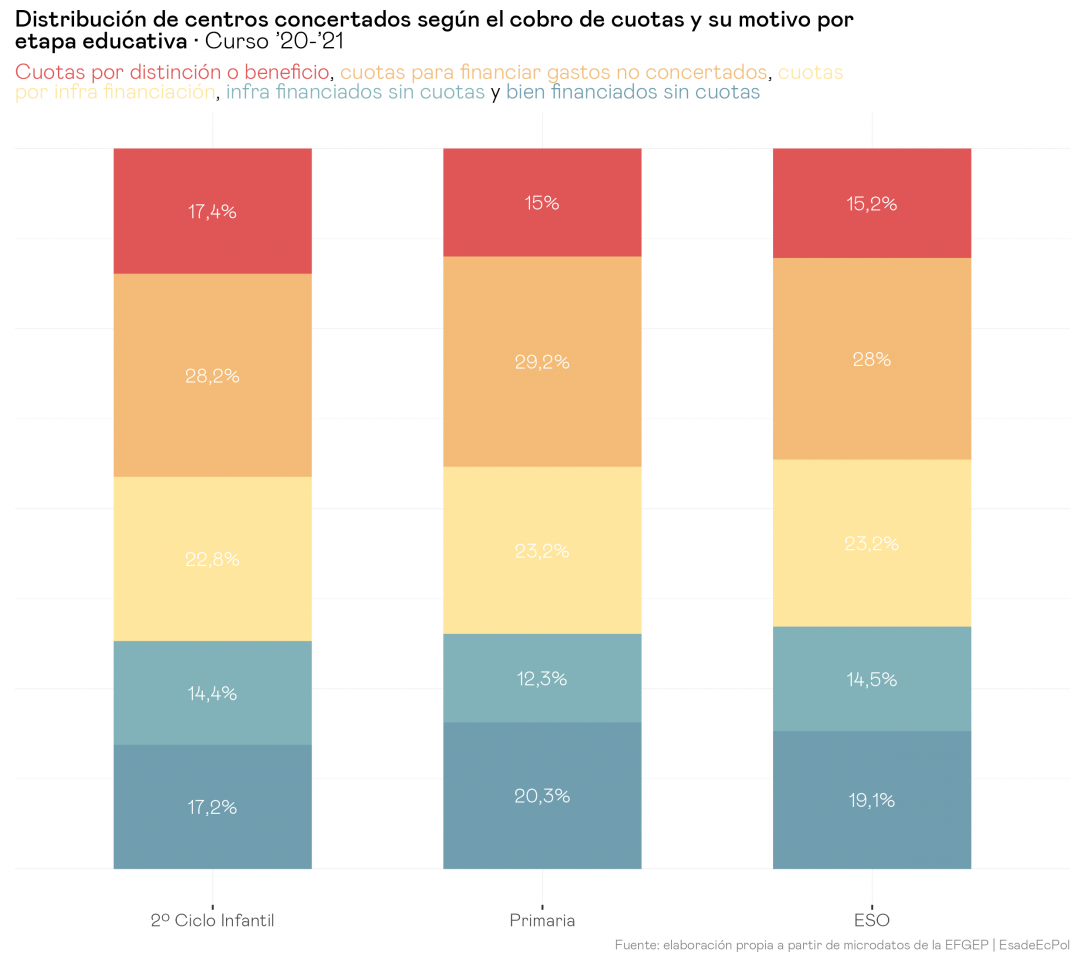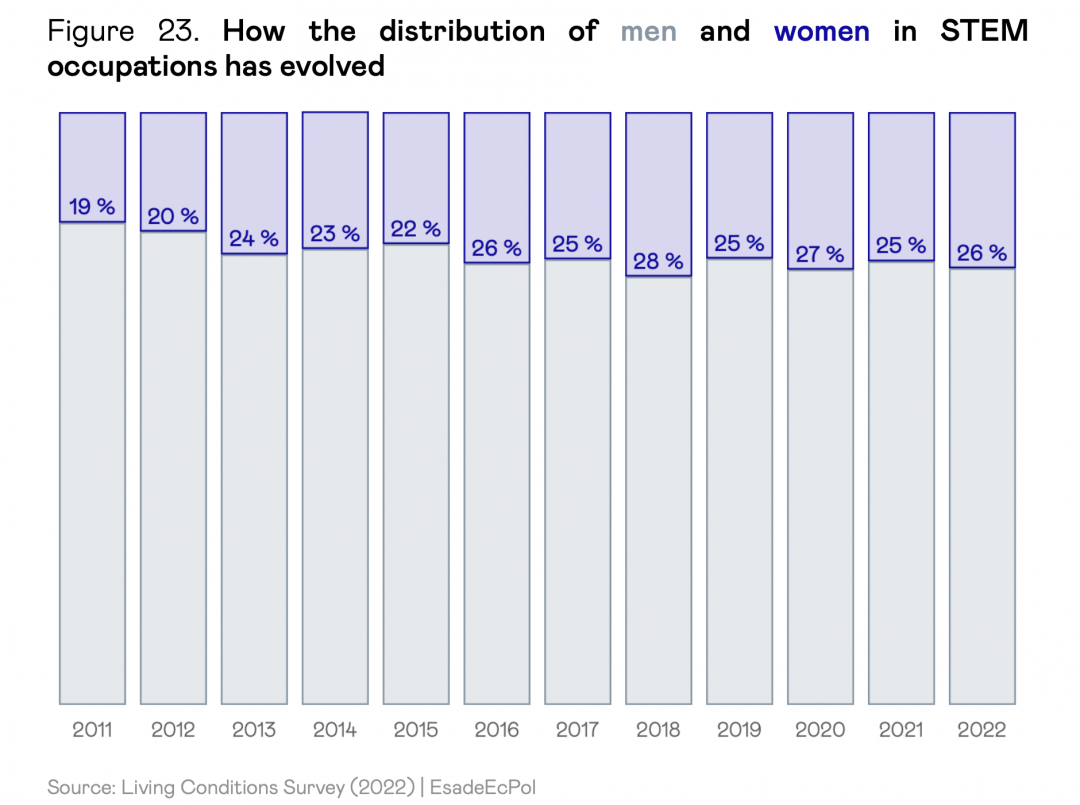
Polarization and coexistence in Spain 2021. The role of the territories
Amuitz Garmendia, Sandra León
12 Apr, 2022
In public debate, polarization is usually presented as inevitable, extreme and omnipresent, in the territorial sphere as well as in the spheres of ideology and identity. Nevertheless, the results of the ICIP-EsadeEcPol survey – conducted in 2021, presented here, and aimed at analyzing the nature and measuring the severity of polarization in Spain – show a much more nuanced and complex picture. Although the high levels of tension in politics seem to be the reflection of a socially fractured country, in fact, the results of the survey indicate that there does not seem to be a problem of coexistence.
The main focus of affective polarization (that which is defined by the distance between the feelings we have towards the group we identify with and those we express towards others) are political parties, since the degree of affection for the voters of certain parties is less than 20 points out of 100 (where 100 is the maximum degree of affection). In contrast, the degree of affection of the citizens of each autonomous community towards the other territories is not particularly unfavorable: affective polarization is centered on the political parties, rather than on the territories.
In polarization, with regard to specific ideological issues:
→ There are broad crosscutting consensuses on gender equality: both in Spain as a whole, as well as in all the autonomous communities, approximately 75% of citizens agree, for example, on sanctioning companies that pay less to women for the same work, or promoting workplaces without gender discrimination.
→ The issues that produce the greatest polarization are the evaluation of the Transition and territorial organization: the inhabitants of Catalonia and the Basque Country are more opposed to recentralization and more in favor of decentralization than the rest; they are also more opposed to transfers to other territories.
→ On the other hand, agreement on redistribution by means of taxes and monetary transfers from richer to poorer households is much broader. Similarly, the preference for better services, even if this entails higher taxes, generates more consensus than disagreement.
The survey has also conducted a detailed analysis of the identity dimension of polarization (that which is related to the way we define our own identity as opposed to that of others):
→ The most polarizing issues in the public debate (autonomous community, social class and gender) emerge as scarcely defining personal identity: they are “not at all” or only “somewhat” important for the identity of over
70% of the Spanish population.
→ Language, the aspect most closely related to personal identity is “quite” or “very” important for only 35% of the Spanish population. This figure hardly varies among autonomous communities.
→ Dual territorial identity (Spanish-autonomous community) is more frequent than the extremes and, despite the differences between autonomous communities, in no case do they exceed the intermediate positions.
→ Family context affects territorial identity: when one of your parents is from a community that is different from yours, the likelihood of identifying with this community decreases significantly. In contrast, the broader context
(the popularity/frequency of one’s own identity in the local environment) does not seem to have an impact.
All this takes place in a context of a positive evaluation of coexistence, with a high level of trust among citizens. Coexistence, however, is valued more highly in smaller places, immediate surroundings, and in some communities more than in others (especially in Catalonia).
On the other hand, trust in institutions is generally low: no government administration (local, regional, central or European) receives a passing grade in Spain.
In conclusion, the degree of ideological, identity and affective polarization with territorial roots features expected but moderate points of tension with respect to the perception that could be derived from public and political debate. In contrast, polarization occurs through institutions: the lack of trust in them, together with a strong rejection of political parties other than one’s own, and the specific capacity that institutions in charge of coordinating territorial organization have to create tension. It is this polarization through institutions that poses the greatest risk to the stability of the democratic process.


Profesora asistente en el Departamento de Ciencias Sociales y secretaria académica del Instituto Carlos III – Juan March de Ciencias Sociales (IC3JM)
View profile
Profesora Titular de Ciencia Política y Directora del Instituto Carlos III-Juan March
View profile

